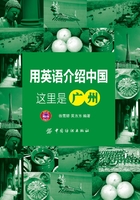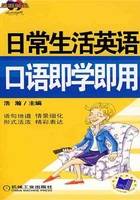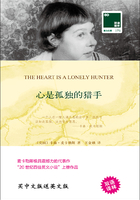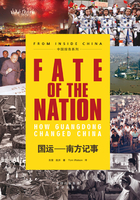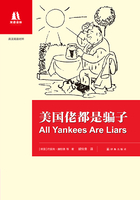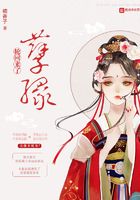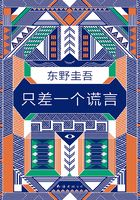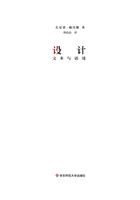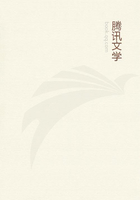During the Beijing Olympic Games, Xiaoqiang went to another gym equipment company owned by a Taiwanese, and his job there was to sell treadmills. There was no base salary there; and he was paid 5% commission. In the first month, Xiaoqiang made some 1,500 yuan. By the end of the year, Xiaoqiang had switched jobs again, this time to sell foot spas.
I asked him, "Why do you job-hop so frequently?"
He answered after a pause, "I actually felt really embarrassed the first time I quit my job. I felt that they had taken me in when I first came to the city, and that I had betrayed them by leaving. But those words" country bumpkin " kept ringing in my ear. How could I be a" country bumpkin "? Just because I lack nothing but a residence permit, a diploma and a decent job; who are you to insult me? But on second thought, it was true that not everything in my life was perfect. Although I'm not sure how to make things any better, I do know that it would be foolish to wait around. Only a 'country bumpkin' would waste his life away. Now by selling foot spas, I don't actually earn more than selling treadmills, but I feel I come into contact with more customers—after all, there are more people who buy foot spas than those who buy treadmills—and so the more customers I engage with, the more I get to practice my sales techniques, and the more competent I am. I don't know what will happen in the future, but for now I want to prove myself to the Beijing people: I'm not a country bumpkin!"
During our conversation, I also came to understand that Xiaoqiang was also a "moonlighter" (the Chinese expression for non-savers) who immediately spent every penny of his salary. He did the following calculations with me: He lived in a basement, and the monthly rent was 400 yuan. On average he spent 20 yuan a day on food, bringing his total expenses up to 600 yuan a month. Add to that a telephone bill of 100 yuan per month, together with the cost of clothing and occasional parties with colleagues and friends, and there would be nothing left in his bank account. He couldn't save even if he wanted to.
I asked him, "Do you have any plans for the future?"
"The future?" Xiaoqiang, still childlike in complexion, looked confused, "I don't know for sure. I really don't know. In our group of young workers, no one even mentions the word 'future.'"
"I can see that you might not want to talk about it, but is it possible not to think about it?" I asked.
Xiaoqiang was silent for a while, and then said, "How can we avoid thinking about it? We can think until our heads explode, but nothing will come of it. Sales jobs are for young people; what will I do when I'm old? If I want to find another job, I need a diploma; if I want to start my own business, I need funds. I have already discussed the possibility of setting up a foot spa selling agency with a few old friends in a county. It would at least be more promising than selling them in a supermarket. But firstly, we are worried that the consumer trends of a small county town may be more backward than in the city. Secondly, we would need at least 50,000 yuan to start an agency, and we have no way to raise that kind of sum. Moreover, at the moment I only need to support myself, but someday I may want to get married and start a family, and for that at the very least I must have an apartment of my own. With house prices so high in Beijing that even the locals cannot afford them, isn't it a daydream to think we will ever be able to buy one ourselves? So, what's the use in thinking about it? Since I still have to live my own life, I have made a decision: Now that I have come to the city, I will not go back."
Xiaoqing frowned, his expression deadly serious, perhaps even confused.
That look etched itself on my conscience. In China there are around 100 million migrant workers just like Xiaoqiang that belong to the 'new generation', some of whom are better off than him and some of whom are worse. How can we fail to be moved, knowing that these young migrant workers think on their lives, and their future, with such a forlorn expression?
The Father: "Every penny of it was earned by hard work!"
Talk of migrant workers always brings to mind my hometown, Wenzhou.
At the beginning of the reform and opening-up when Deng Xiaoping first started his liberalizing reforms in the 1980s, it was the farmers of Wenzhou that first broke away from their ties to the land. Determined to overcome any obstacles and resolved to undergo all hardships, the farmers of Wenzhou fought for their place against the tide of the emerging market economy, with that kindness, courage and wit that only farmers are capable of.
I often cite the following two examples:
One day, a fellow man from Wenzhou who worked in cotton fluffing and quilt cotton processing, read in a newspaper that a nationwide crack-down on criminal activity was to be launched. After thinking about it for a whole night, he decided to purchase a large amount of cheap quilts which he then sent to prisons in the province. The prison guards were surprised, "How did you know that we needed quilts?" The businessman chuckled, "Once the police start cracking down on criminal activity,' there are sure to be more inmates, and the prisons will therefore need more quilts."
Another man from Wenzhou had his own business selling candles. One day, after hearing from a radio report that Northwest China had been hit by drought, he hurriedly ordered a batch of candles and sent them to the northwest. Everywhere in the region was in short supply and he made quite a fortune. When a friend asked him how he did it, he answered brandishing a glass of wine as he divulged his secret, "You are asking me this because you don't know how to seize an opportunity when it presents itself. In times of drought, small hydro-power plants would have little water to generate electricity. When the electricity goes out, candles would quickly sell out, wouldn't they?"

